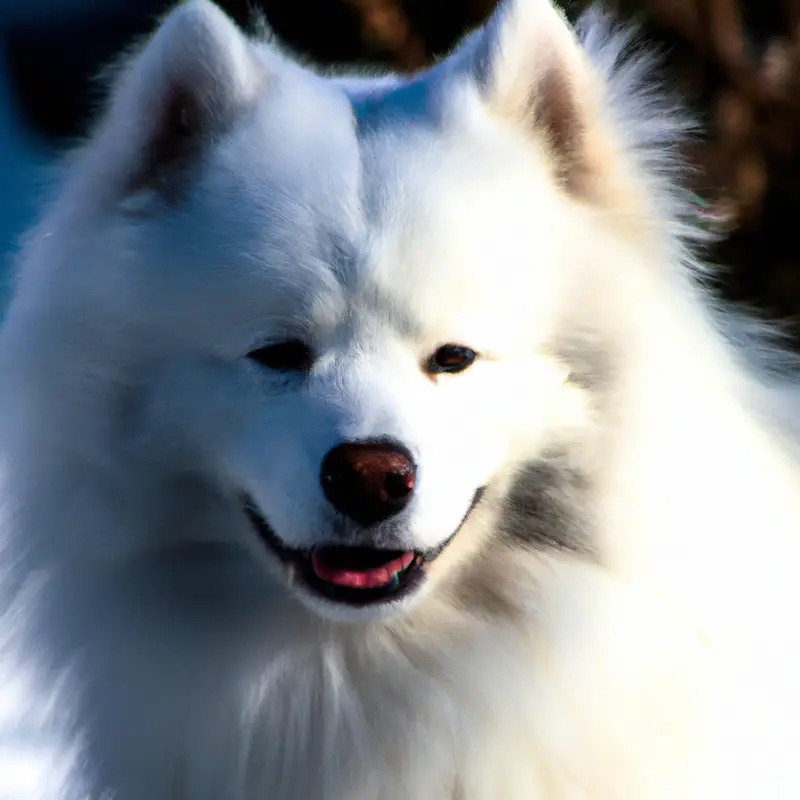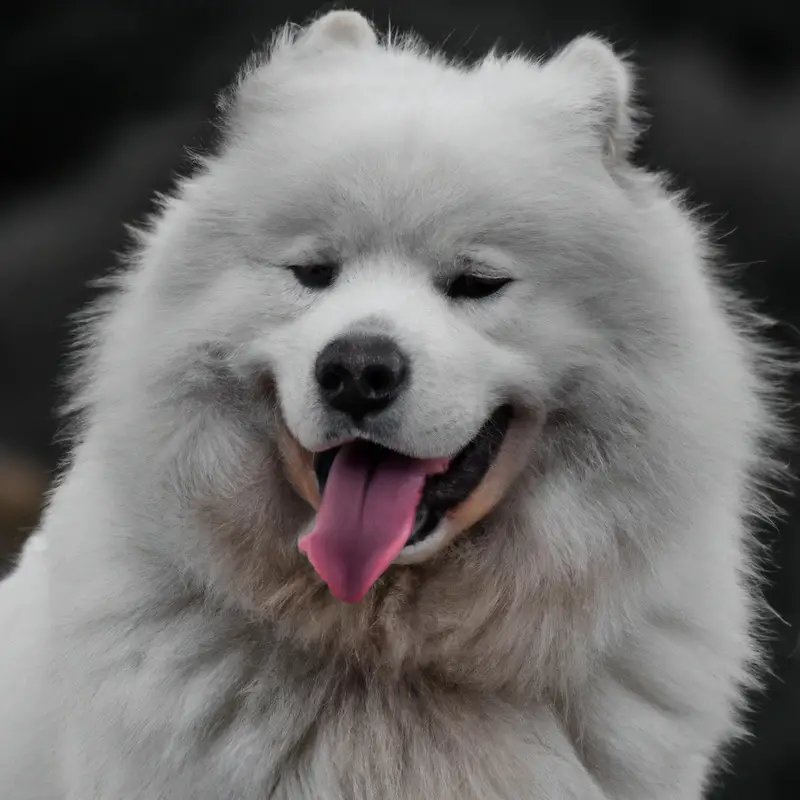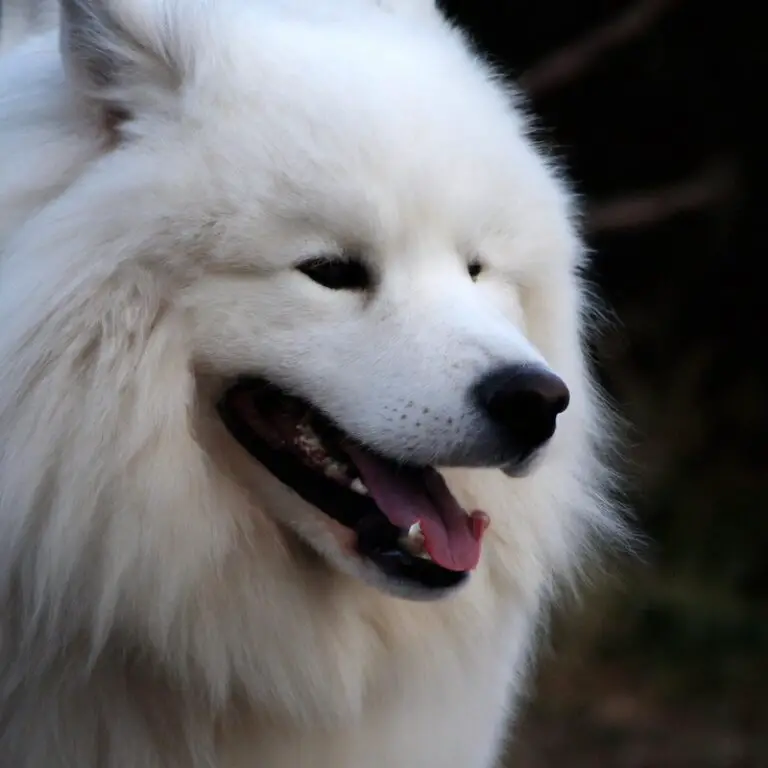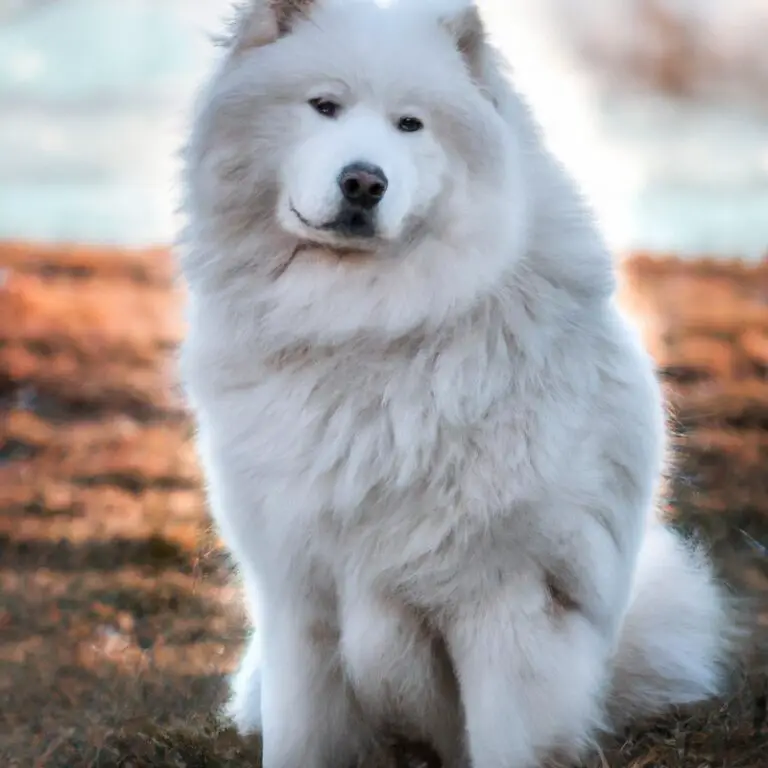Are Samoyeds Good With Strangers?
Key Takeaways:
- Samoyeds are generally friendly and can be good with strangers, but proper socialization is essential.
- Samoyeds have a friendly nature, but they may be reserved or aloof with unfamiliar people.
- Early training and positive experiences are crucial in ensuring that Samoyeds are comfortable around strangers.
- It is important for owners to provide proper guidance and supervision to Samoyeds when interacting with strangers to prevent any potential problems.
Are Samoyeds good with strangers? It’s a question that many prospective dog owners ask when considering this beautiful breed.
Well, let me tell you, as an expert on Samoyeds, their behavior with strangers can vary based on a few factors.
On one hand, these friendly and outgoing dogs are known for their sociability. They absolutely adore their families and love making new friends.
However, some Samoyeds may display reserved behavior around unfamiliar faces.
In this blog post, we’ll explore the factors that influence their behavior, offer tips for introducing them to strangers, and discuss how to handle any reserved or cautious behaviors they may exhibit. So, let’s dive in and uncover the truth about Samoyeds and strangers!
| Samoyeds | |
|---|---|
| Good with Strangers | Yes |
How do Samoyeds typically behave with strangers?
Friendly and outgoing nature of Samoyeds
Samoyeds have a friendly and outgoing nature.
They tend to be very social dogs and enjoy the company of both familiar faces and strangers alike.
They have a natural inclination to greet new people with a wagging tail and a smile.
This makes them excellent companions and family pets who are always ready to make new friends.
They are usually outgoing and affectionate, making them a popular choice for those seeking a friendly and sociable canine companion.
Samoyeds as family-oriented dogs
Samoyeds are known for their friendly and affectionate nature, which makes them great family-oriented dogs. They thrive on human companionship and love being part of a family.
Samoyeds are gentle and patient with children, making them ideal playmates and companions.
Their loyalty and protective instincts also make them great at keeping an eye on the family. Overall, Samoyeds bring joy, love, and a sense of togetherness to any family lucky enough to have them.

Potential reserved behavior with strangers
Samoyeds can sometimes exhibit reserved behavior around strangers.
This is because they are naturally friendly and loyal to their family and may take some time to warm up to unfamiliar people.
They might be cautious or aloof at first, but with proper socialization, they can become more comfortable.
It’s important to be patient and give them space to gradually build trust.
Positive experiences and gentle introductions can help them overcome their reserved behavior and become more welcoming with strangers.

Factors influencing Samoyeds’ behavior with strangers
Personality and temperament
Personality and temperament play a significant role in determining how Samoyeds interact with strangers.
These dogs are known for their friendly and outgoing nature, making them generally good with new people.
Samoyeds are typically very gentle and affectionate, which makes them more likely to approach strangers in a friendly manner.
However, individual dogs may vary in their levels of socialization and training, so it’s important to introduce them to different people and environments from an early age.
With proper socialization and training, Samoyeds can be friendly and welcoming to strangers.

Early socialization and training
Early socialization and training play a key role in shaping a Samoyed’s behavior with strangers.
It’s important to expose them to a variety of people, environments, and experiences from a young age.
This helps them become confident and comfortable around unfamiliar faces.
Training should focus on teaching them proper manners and obedience, including commands for greeting strangers politely.
Consistency, positive reinforcement, and patience are key when training a Samoyed to interact appropriately with strangers.
Environment and upbringing
Environment and upbringing play a significant role in shaping a Samoyed’s behavior with strangers.
Growing up in a loving and social environment where the dog is exposed to different people can foster positive interactions with strangers.
On the other hand, a negative or isolated upbringing can lead to fear or aggression towards unfamiliar individuals.
The early socialization and training experiences a Samoyed receives greatly influence their level of comfort and friendliness with strangers.
Creating a positive and nurturing environment is key to raising a Samoyed who is good with strangers.
Individual differences
Individual differences play a significant role in determining how Samoyeds behave with strangers.
While some Samoyeds are naturally friendly and outgoing, others may be more reserved or cautious.
It’s important to recognize and respect these differences, as forcing interactions can lead to discomfort or anxiety for the dog.
Understanding your Samoyed’s unique personality and providing positive socialization opportunities can help them form positive relationships with strangers over time.
Building trust and ensuring a safe environment are key to a Samoyed’s comfort level with unfamiliar people.
Tips for introducing Samoyeds to strangers
Gradual introductions and controlled environments
When introducing your Samoyed to strangers, it’s important to take it slow and create a controlled environment.
Gradual introductions allow your dog to adjust and feel more comfortable.
Start with short interactions and gradually increase the duration and number of encounters.
Always provide positive reinforcement and rewards during these introductions.
Controlled environments, such as a fenced yard or a neutral territory, can help reduce anxiety and ensure everyone’s safety.
Remember to monitor your dog’s body language and take breaks if needed.
Positive reinforcement training techniques
Positive reinforcement training techniques are highly effective when it comes to teaching your Samoyed good behavior.
Instead of punishing your dog for bad behavior, focus on rewarding them for good behavior.
This can be done through treats, praise, and affection.
Consistency is key – make sure to reward your Samoyed immediately after they display the desired behavior.
By using positive reinforcement, you will establish a strong bond with your dog and encourage them to continue behaving well.
Respect boundaries and body language
Respecting boundaries and understanding body language is essential when interacting with Samoyeds. These friendly dogs appreciate personal space and may become uncomfortable if their boundaries are crossed.
To respect their boundaries, avoid aggressive or forceful approaches and allow them to approach you at their own pace.
Additionally, pay attention to their body language, such as tail wagging, ear position, and eye contact, as it can provide important cues about their comfort level. Remember, a calm and non-threatening approach goes a long way in building trust with Samoyeds.
Patience, consistency, and time
Patience, consistency, and time are essential when it comes to introducing Samoyeds to strangers. It’s important to be patient with your dog’s progress and not rush the process.
Consistency in your approach helps the dog understand what is expected of them.
Give the dog enough time to get comfortable and build trust with new people. Remember, every dog is different, so be patient and consistent in your training.
Handling Samoyeds’ reserved or cautious behavior
Recognizing and understanding signs of discomfort
Recognizing and understanding signs of discomfort in Samoyeds is important for their well-being. Here are some behaviors to look out for:
- Body language: Pay attention to a hunched posture, lowered head, and a tucked tail, as these indicate unease.
- Avoidance: If your Samoyed is avoiding eye contact, turning away, or trying to hide, they may be feeling uncomfortable.
- Growling or barking: These vocalizations are clear signs of discomfort and should not be ignored.
- Freezing or stiffness: If your Samoyed becomes rigid or freezes in place, it’s a sign that they are feeling threatened or anxious.
Remember, each dog is unique, and their comfort levels may differ. If you notice any of these signs, it’s best to give your Samoyed space and seek professional help if needed.
Seeking professional help if needed
If your Samoyed is displaying concerning or challenging behavior, it may be best to seek professional help. A qualified dog trainer or animal behaviorist can provide guidance and support tailored to your specific situation.
They can help identify the underlying causes of the behavior and develop a training plan to address it effectively.
Additionally, professional help will ensure that you are using appropriate and humane techniques to modify your dog’s behavior. Don’t hesitate to reach out to a professional if you need assistance.
Building confidence through desensitization and counter-conditioning
Building confidence in a Samoyed through desensitization and counter-conditioning is key.
Start by gradually exposing them to the things that make them uncomfortable.
For example, if they are fearful of strangers, introduce them to new people in a controlled and positive way.
Use treats, praise, and play to create positive associations.
Slowly increase the exposure over time.
This method helps them build trust and confidence, improving their overall behavior and reducing anxiety.
Remember to take it at their pace and be patient throughout the process.
Frequently Asked Questions
Can Samoyeds be trained to be more accepting of strangers?
Yes, Samoyeds can be trained to be more accepting of strangers.
Consistent socialization from a young age is key.
Gradually expose your Samoyed to various people, settings, and experiences.
Use positive reinforcement techniques, such as treats and praise, to reward calm and positive behavior around strangers.
Take it slow and go at your dog’s pace, keeping the interactions positive and low-stress.
Seek guidance from a professional dog trainer if needed.
Remember, every dog is different, so patience and consistency are important.
Are Samoyeds suitable as guard dogs?
Samoyeds are not typically suitable as guard dogs. They are friendly and gentle by nature, and their temperament is more suited to being family pets rather than protectors of the home.
While they may bark to alert their owners of strangers, they are not known for being aggressive or protective.
However, their friendly demeanor makes them great companions and therapy dogs.
How can I ensure my Samoyed behaves well around strangers?
To ensure your Samoyed behaves well around strangers, it’s important to focus on socialization and training.
- Begin socializing your Samoyed from a young age, exposing them to different people, environments, and situations.
- Use positive reinforcement techniques to reward good behavior and discourage any signs of aggression or anxiety.
- Teach basic obedience commands like “sit,” “stay,” and “leave it,” to establish control and ensure your Samoyed listens to you in different situations.
- Gradually expose your Samoyed to strangers, starting with calm and friendly individuals, and gradually increasing the level of interaction over time.
- Stay calm and assertive when introducing your Samoyed to new people, as they can pick up on your energy and emotions.
- Create a safe and quiet space for your Samoyed to retreat to if they become overwhelmed or anxious.
- Consistency is key, so regularly reinforce socialization and training throughout your Samoyed’s life.
Final Verdict
Samoyeds are known for their friendly and outgoing nature, making them generally good with strangers. However, some individual dogs may be more reserved or cautious, which can be influenced by their personality, early socialization, environment, and upbringing.
When introducing Samoyeds to strangers, it is important to take a gradual and controlled approach, using positive reinforcement techniques and respecting boundaries.
If a Samoyed exhibits reserved behavior, it is crucial to understand the signs of discomfort and seek professional help if needed. With patience, consistency, and time, Samoyeds can become more accepting of strangers and develop the confidence they need.







